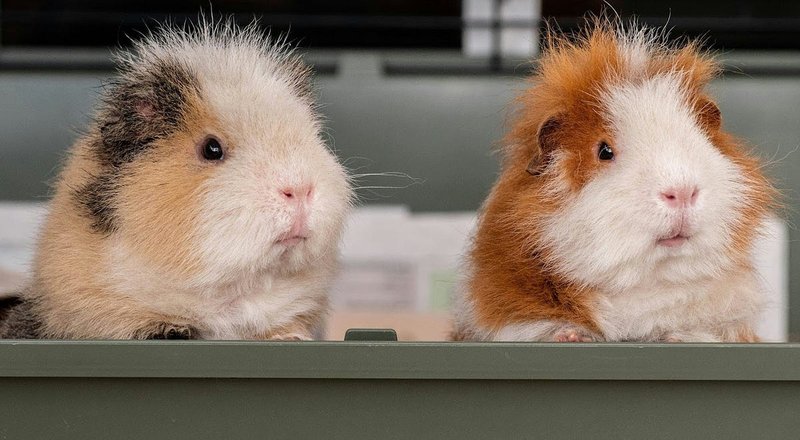
Understanding pet laws can feel a bit like wandering through a maze. Many people don’t realize until it’s too late that their beloved pets might not be allowed in certain areas. Before you rush out to adopt, it’s crucial to know the ins and outs of guinea pig legality and some best practices for their care. Grab a cup of coffee, and let’s chat about it!
Where Are Guinea Pigs Legal?
Honestly, in most places in the United States and many countries around the world, guinea pigs are perfectly legal to own. They are popular pets because they’re social, relatively easy to care for, and generally good with kids. However, there are a few exceptions you should be aware of.
For instance, some states have specific laws that might restrict ownership. In California, guinea pigs are considered domesticated pets, so they’re allowed. However, in Hawaii, the laws are much stricter. The state strictly prohibits many non-native species, including guinea pigs, to protect its unique ecosystems. It’s always a good idea to check with local regulations before bringing one home.
In addition to state regulations, certain cities or housing communities may have their own rules. For example, some pet-friendly apartments or condos might have restrictions on the types of pets you can have. Always read the fine print in your lease or homeowner’s association rules to avoid any surprises.
Why Do Some Places Ban Guinea Pigs?
You might be wondering, “Why would any place ban such cute pets?” The answer lies in environmental concerns. Many areas, like Hawaii, have strict policies on non-native species because introduced animals can disrupt local wildlife. When a species that isn’t native to an environment is introduced, it can outcompete local species for food and habitat.
In a nutshell, while guinea pigs are adorable and harmless pets for us, they can pose a threat to delicate ecosystems if they escape into the wild. By keeping certain animals illegal, states can protect their native wildlife. It’s a bit of a complicated balancing act between pet ownership and environmental conservation.
How to Stay Compliant with Local Laws
Now that you know where guinea pigs are legal and why some places restrict them, let’s talk about how to stay on the right side of the law. First, do your homework. Look up local laws regarding pet ownership in your area. If you’re thinking about moving and want to take your guinea pig with you, research the regulations beforehand.
Here are some quick tips to ensure you comply:
- Visit Local Government Websites: They often have pet ownership rules listed clearly.
- Join Local Pet Groups: Online communities can provide insights into common regulations in your area.
- Check with Animal Shelters: They usually have experience with local laws and can guide you.
Staying informed not only keeps you compliant but also ensures a safe and happy life for your guinea pig.
Best Practices for Guinea Pig Ownership
Owning a guinea pig isn’t just about legality; it’s also about giving them the best life you can. Here are some best practices to ensure your guinea pig thrives in your care:
1. Provide a Spacious Cage: Guinea pigs need room to explore and move around. A larger cage can help prevent boredom. Make sure the floor space is at least 7.5 square feet for one guinea pig.
2. Social Interaction: These little guys are social creatures, so consider adopting a pair if you can provide the space and resources. Having a buddy can make their lives much happier.
3. Healthy Diet: Their diet should include hay, fresh vegetables, and a limited amount of pellets. Avoid any foods that are high in sugar, like fruits, and always ensure they have fresh water available.
4. Regular Vet Check-ups: Just like dogs and cats, guinea pigs need regular health check-ups. Look for a vet experienced with small animals to keep your pet healthy.
By following these practices, you’ll not only comply with the laws but also ensure your guinea pig is happy and healthy.
Common Misconceptions About Guinea Pig Ownership
You might have heard some myths about owning guinea pigs. Let’s bust a few together!
1. Guinea Pigs Can Live Alone: While they technically can, they thrive with companionship. They’re social animals that enjoy being around others.
2. They Don’t Need Much Space: In reality, guinea pigs need plenty of space to roam and play, contrary to the belief that they can live comfortably in a small rabbit hutch.
3. They Don’t Need Vet Care: This is a huge misconception. Just like any other pet, they require veterinary care and have specific health needs.
These misconceptions can lead to improper care and contribute to the perception that guinea pigs are easy, low-maintenance pets. Remember, every pet deserves appropriate care and attention.
What to Do If You’re in a Restricted Area
If you find yourself living in an area where guinea pigs are restricted, don’t despair! Here are some alternatives you might consider.
1. Look into Local Rescue Organizations: Some organizations specialize in rehoming pets and might help you find a suitable place that allows guinea pigs.
2. Consider Other Pets: If you’re set on a small animal, look into other pets that are legal in your area, such as hamsters or gerbils.
3. Advocacy: Sometimes, the best course of action is to get involved in local advocacy groups that push for changes in pet ownership laws.
While it can be frustrating to navigate pet ownership laws, there’s always a way to find a solution that aligns with your love for animals.
Final Thoughts on Guinea Pig Ownership
So, are guinea pigs legal everywhere? Not quite. The legality of owning a guinea pig greatly depends on where you live, and being aware of your local laws is essential for responsible pet ownership. But being informed goes beyond just legality; it also involves understanding how to give your guinea pig the best life possible.
Whether or not guinea pigs are legal in your area, it’s crucial to approach pet ownership thoughtfully. If you decide to welcome one into your family, make sure you’re ready for the joy—and responsibility—they bring. After all, a well-cared-for guinea pig can be a delightful companion for years to come!

